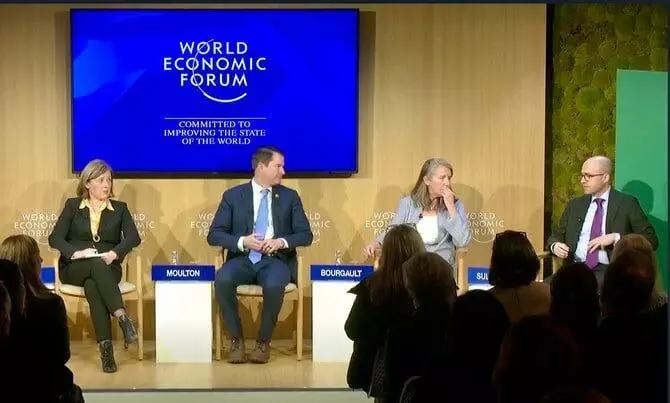
NYT chairman predicts ChatGPT will exacerbate disinformation situation
text_fieldsDavos: Arthur Gregg Sulzberger, the chairman of the New York Times, stated during a panel discussion at the World Economic Forum Annual Meeting on Tuesday that ChatGPT, the natural language processing tool powered by artificial intelligence, will exacerbate the worldwide issue of disinformation.
“A lot of this will not be information that is created with the intent to mislead, but based on everything I’ve read, I suspect we are going to see huge amounts of content that are produced, none of which is particularly verified (and) the origins of which are not particularly clear,” he added.
“I think we are getting to a point where tools are going to make it harder and harder to solve this problem.
“We need to address this information crisis but we also need to rebuild an ecosystem that is weaker than ever.”
He added that to tackle the crisis, the media has “to go back to first principles, which is if you do not want bad information, you need to crowd it out with good information.”
A member of the US Congress representing Massachusetts, Seth Moulton believes that “there is a hunger for the truth,” which means “the market will be even bigger for the machine that can identify disinformation than for the machine that makes it easier to write your fourth-grade history paper.”
He added that there should be accountability enforced to achieve “some level of public safety,” explaining that the principles of a free press have been “established for traditional media, that we have accepted for a long time, and we are just having trouble translating those to the social media world.”
The panellists, who were debating the risks of disinformation, concurred that news consumers are, to some extent, aware of what Sulzberger referred to as a "broader mix of bad information that is corrupting the information ecosystem.”
“There is no doubt that society seems to have, at some level, accepted how much the information ecosystem has been poisoned and I think it is going to require real, sustainable efforts from the platforms, political and business leaders, and consumers themselves, to reject that,” he said, Arab News reported
The president and CEO of media organization Internews Jeanne Bourgault, said that “people are also getting used to navigating (disinformation) a little bit better.” To illustrate this, she highlighted the “unbelievably complicated information environment” in the Philippines and added: “Yet, people were able to find the information they needed.”
She said one of the “most worrisome” disinformation trends is “gendered disinformation,” and that “these types of stories hit women so much worse — women politicians.”
She added: “It has been proven across the board that women online get harassed, and online harassment becomes offline harassment very, very quickly.”
The vice president of the European Commission for Values and Transparency, Vera Jourova said, “To legislate on how the digital space should look is a pretty daring exercise.”
Sulzberger concurred that “terms like fake news were greedily gobbled up by autocratic regimes — and aspiring autocratic regimes — who then passed laws that they claimed were banning ‘fake news’ … but were actually banning the scrutiny and accountability provided by an independent press.”
Jourova spoke about three ways in which the disinformation crisis can be addressed, the first of which is to “make sure the disinformers do not find the feeding ground, the society which is willing to get brainwashed.” She further added that this can be achieved if citizens are “more resilient through education and the work of professional media.”
Jourova stated that the representatives of democratic governments should enhance their communication tactics as the second stage, and adequate regulation should be the third.
“The content that is illegal offline has to be treated as illegal online, such as terrorism, political extremism and hate speech,” she said, Moreover, government organisations make 90 per cent of Facebook's requests to remove information.
People should "look into what is promised in political campaigns" because they "are full of lies and unreachable goals," Jourova warned, and they should be more demanding of the truth.






















